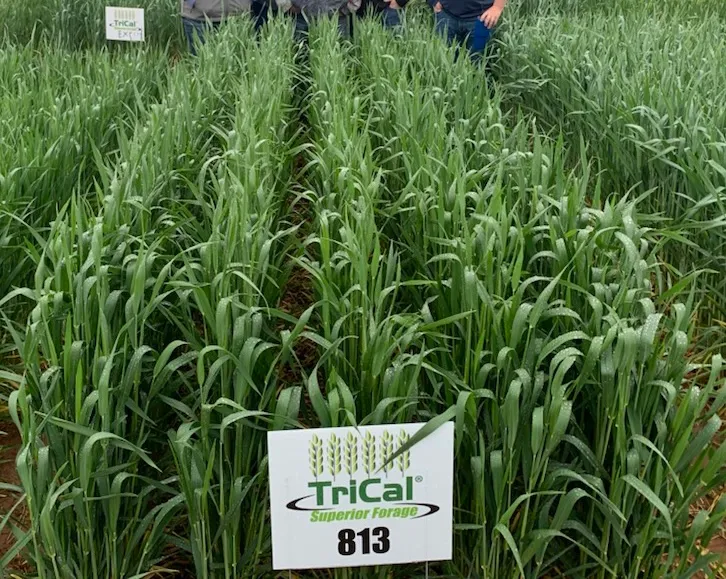
813
Tricale hexaploide var. 813
813 is one of the most utilized triticale's in the Midwest. 813 is awnletted and has a superior disease package that works well for both grazing and chopping. 813 is consistently at the top of the list in both tonnage and quality.
- Growing Region: Midwest
- Blooms:
- Life Form: Grass
- Application Type: Agriculture
- Height: 4+ ft
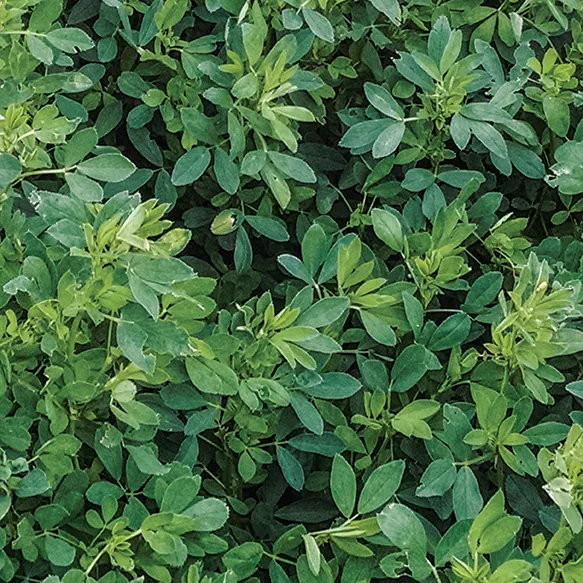
A-100 Grazer Alfalfa
Medicago sativa var. A-100
A-100 Grazer Alfalfa by Star Seed is an exceptionally high yielding and high quality alfalfa that will withstand grazing compaction and high traffic. Product Tech Sheet Related ProductsSlingshot Alfalfa Exclusive genetics with sunken crowns developed with Star Seed breeding partner A-100 Grazer Brand has an excellent agronomic package that provides a very persistent and healthy plant Top production on a varying soil types Fast recovery after cutting Excellent yield potential Proven yields with high forage quality Subset crown Aphanomyces Race 2 resistance Seeding Rate of 18-22 LBS per acre Seeding Dates of April to Mid-May and August to Early September
- Growing Region: California
- Blooms:
- Life Form: Legume
- Application Type: Agriculture
- Height: 1-3 ft
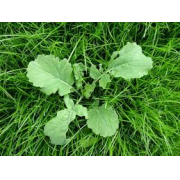
African Cabbage
Brassica carinata
Ethiopean cabbage is a brassica with a hard erect central stem that remains upright during the winter. It provides control of several parasitic nematodes, and is excellent at trapping snow in the winter. It is less palatable than most other brassicas for livestock forage. Pure stand seeding rate 5 lb per acre, optimum planting depth is ¼-1/2 inch, and optimum planting date is August to early September.
- Growing Region: Southeast, Midwest
- Blooms:
- Life Form: Forb
- Application Type: Agriculture
- Height: 1-2 ft
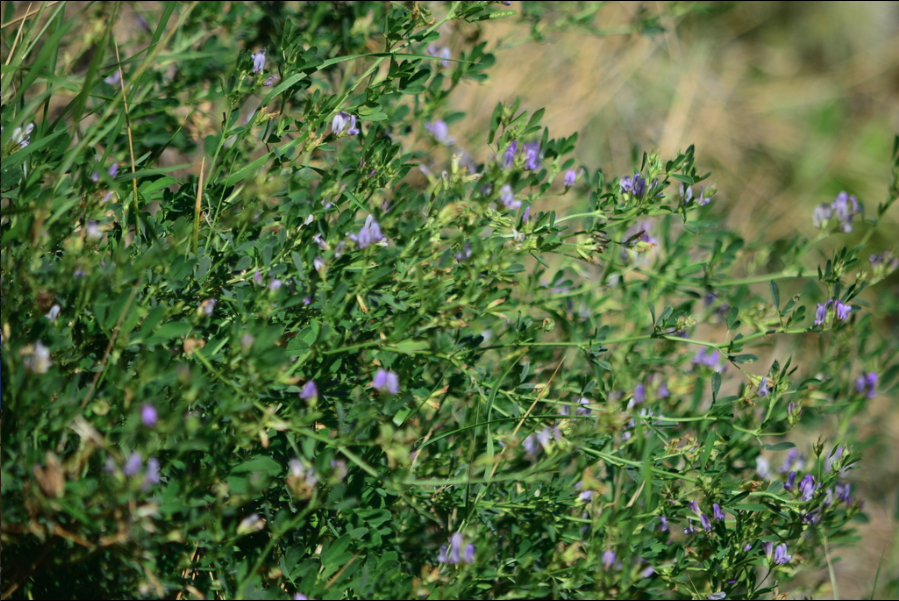
Alfalfa
Medicago sativa
Potentially long-lived nitrogen-fixing perennial legume with a significant taproot and purple flowers. Adapted to fertile, deep, well-drained soils. Intolerant of poor drainage, high water tables and acidic soils. The world’s most well-known and widely used perennial forage legume for pasture, hay, silage, green-chop and rangeland. Excellent forage yield, quality and palatability. Seed alone or in mixed grass pastures; establishes easily. High bloat potential; use caution when grazing. Also use for wildlife habitat for grazing ungulates, geese, grouse and other wild birds. Primarily pollinated by leafcutter bees and many types of native bees; honeybees are reluctant pollinators. Winter hardy, rhizomatous and multifoliate (MF) varieties available.
- Growing Region: Midwest
- Blooms:
- Life Form: Legume
- Application Type: Agriculture
- Height: 1-3 ft
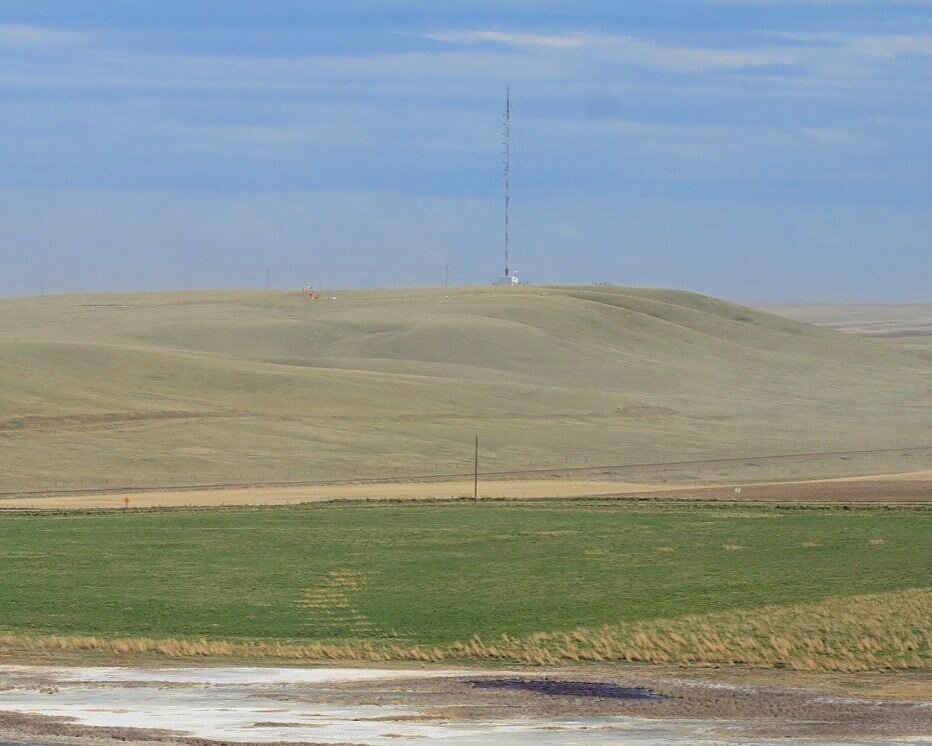
Alkaline Hay & Pasture Blend
n/a
A blend of grass species designed to grow in difficult alkaline soil conditions. Alkaline soils are typically high pH clays (≥ 8.5) with poor particle structure and low capacity for water infiltration and drainage due to the presence of sodium carbonate. Use in either irrigated or dryland applications.
- Growing Region: Pacific Northwest
- Blooms:
- Life Form:
- Application Type: Agriculture
- Height:
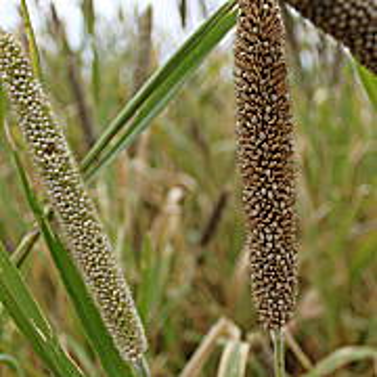
All Star BMR Pearl Millet
Pennisetum glaucum
All Star BMR Pearl Millet All Star BMR Pearl Millet is a hybrid brachytic dwarf BMR and a summer annual forage grass suited best for grazing or hay. Classified as a tall growing warm season grass, with stems that grow in thick clumps with abundant leaves 1 ½ to 2 inches wide. Plant late May through July For best results, plant when soil temperatures reach 60 degrees Planting rates drilled: Dryland 10-20 LBS/Acre, Irrigated 20-28 LBS/Acre Planting depths of 1/2 to 1 inch deep High palatability when grazed 4-6 weeks after planting Hay at approximately three feet before seed heads develop
- Growing Region: North America
- Blooms:
- Life Form: Grass
- Application Type: Agriculture
- Height: 4+ ft
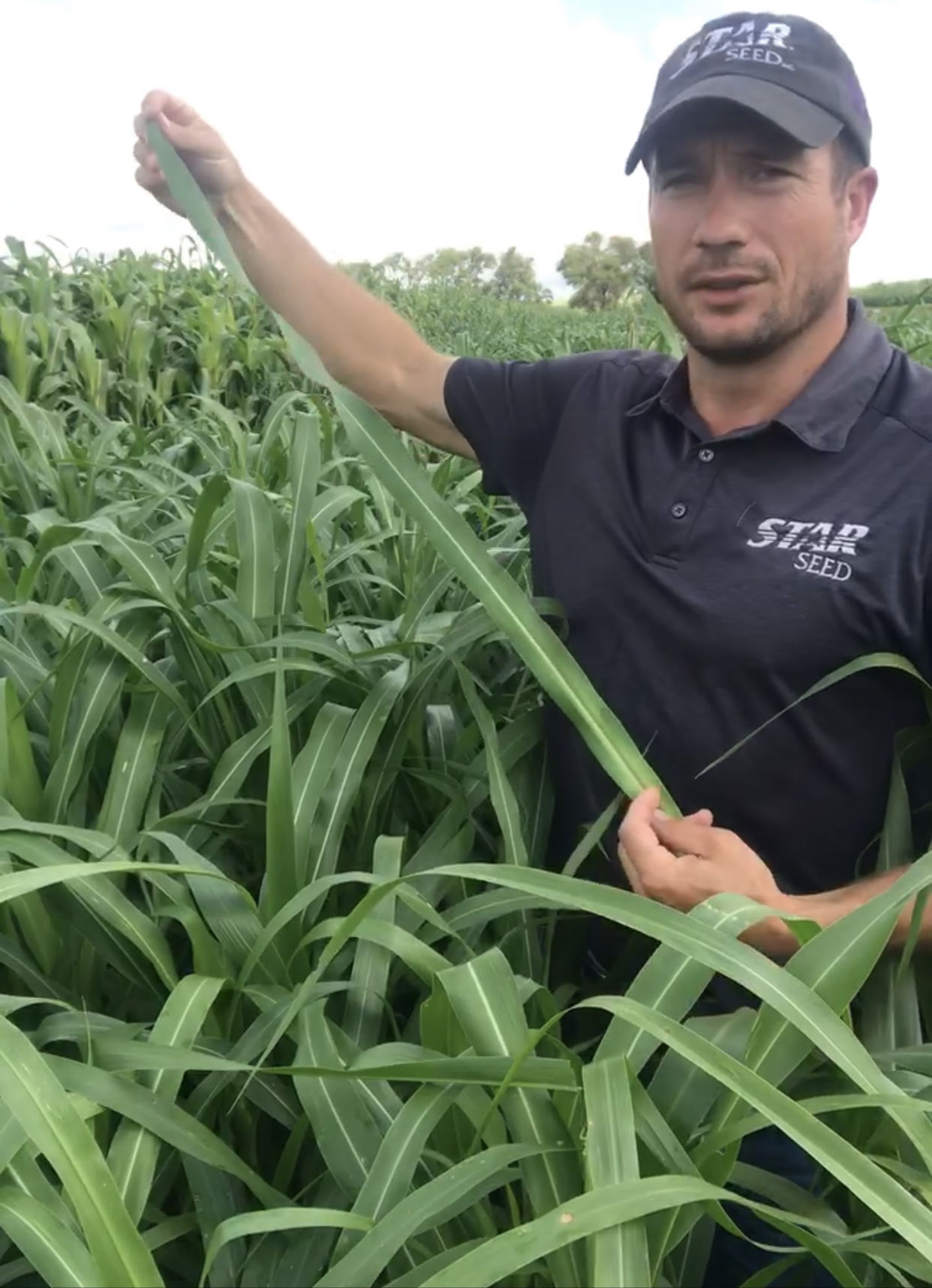
All Star Hybrid Pearl Millet
Pennisetum glaucum
All Star Hybrid Pearl Millet is a summer annual grass best suited for grazing or haying. This tall growing, warm season grass has stems that grow in thick clumps with abundant leaves 1 to 1 1/2 inches wide. Because it does not produce prussic acid, it is safer t0 graze than Sorghum Sudangrass, particularly horses. Product Tech Sheet Related ProductsBrutis Forage SorghumPacker Forage SorghumDrylander Sorghum SudangrassGreen Field Well suited for poor or infertile soils Performs well infertile soils, if fertilized initially High palatability due to the fine stems and leafy characteristics Hay when the plants reach at least three feet Graze as soon as 4-6 weeks after planting Planting dates from late May through July Planting rates drilled: Dryland - 10-20 LBS per Acre Drilled _ Irrigated - 20-28 LBS per Acre Drilled For best results seed when soil temperatures reach 60 degrees
- Growing Region: North America
- Blooms:
- Life Form: Grass
- Application Type: Agriculture
- Height: 4+ ft
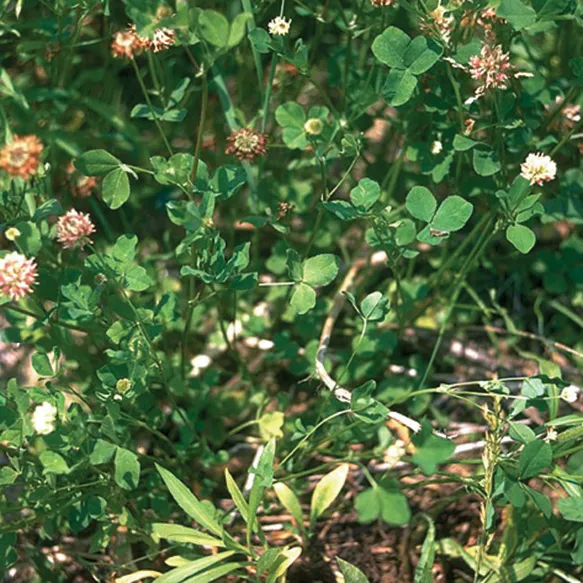
Alsike clover
Trifolium hybridum
Medium statured, relatively short-lived nitrogen-fixing perennial legume with pale pink to white flowers. Not a hybrid, despite its name. Adapted to a wide range of soil types, including sites too acidic for Red clover (T. pratense); more alkaline tolerant than most clovers. Prefers wet sites, tolerating waterlogged soils and up to six weeks of flooding. Winter hardy, able to survive at northern latitudes and high elevations. Use for hay, pasture and soil improvement on Cool, wet sites. Plant with Timothy (Phleum pratense) or Meadow brome (Bromopsis biebersteinii) to improve hay production and prevent lodging. Excellent nectar and pollen source for bees, especially honeybees.
- Growing Region: Midwest, Southeast, Intermountain West, Southwest, Pacific Northwest
- Blooms: Spring, Summer, Fall
- Life Form: Legume
- Application Type: Agriculture
- Height: 1-4 ft
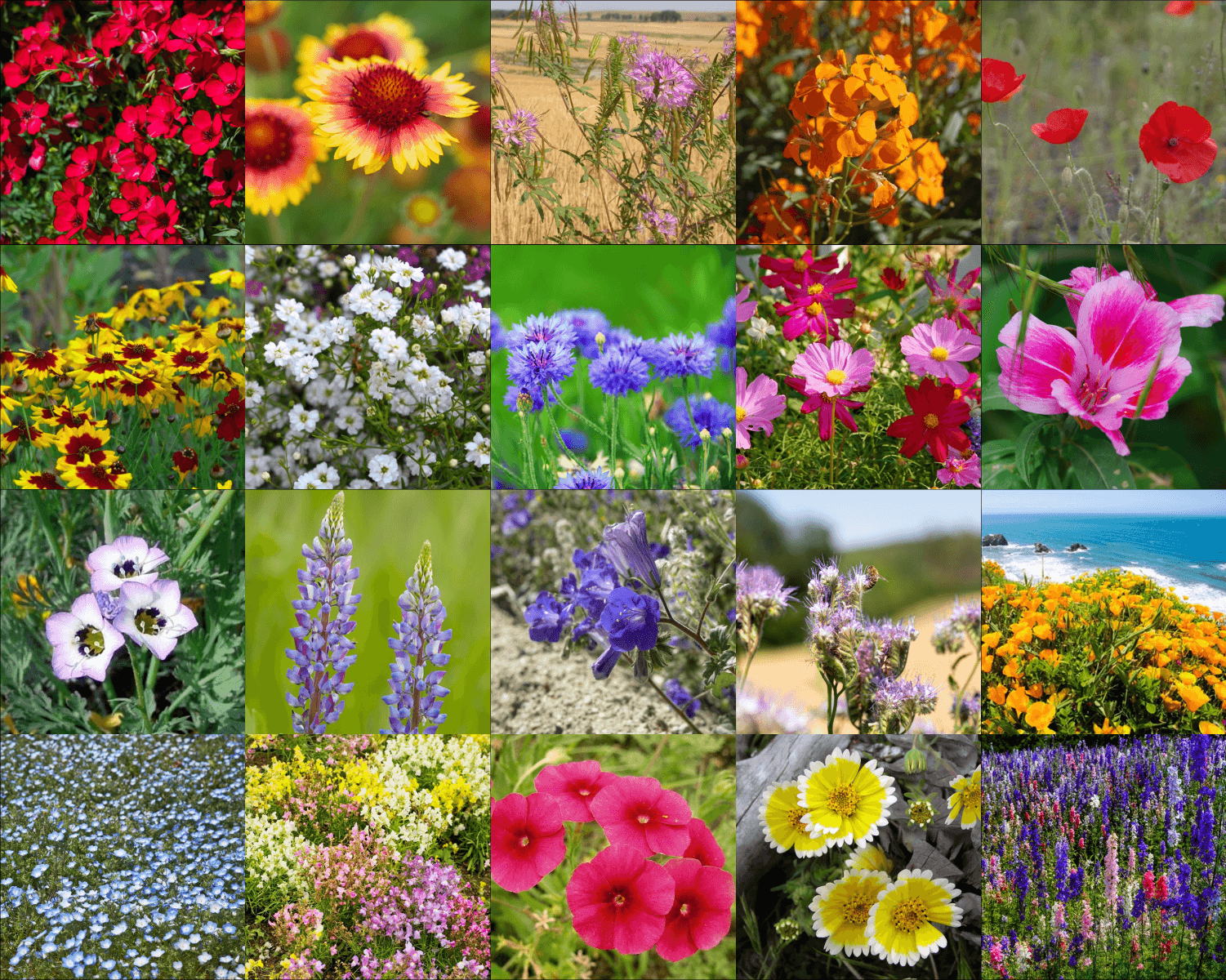
Annual Wildflower Mix
n/a
Our Annual Wildflower seed blend is custom designed for most areas in the United States where a 100% annual blend is desired for over-seeding existing perennial wildflowers and grasses. We thoughtfully selected wildflowers that are appropriate to this area and that provide a variety of bold and delicate blossoms; with both early and late blooming wildflowers for color through the growing season.This blend has been designed with an emphasis on native wildflowers and is adaptable to a wide range of conditions within the United States. The colors in bloom will vary at different times of the year, and depend on how much water and sunlight are available to the wildflowers. The colors which you will see at different times of the year will include blues, purples, reds, yellows, whites and oranges. The actual composition of wildflower wildflowers will vary from season to season and from year to year.
- Growing Region: North America
- Blooms:
- Life Form:
- Application Type: Commercial Beautification, Pollinator Habitat
- Height:
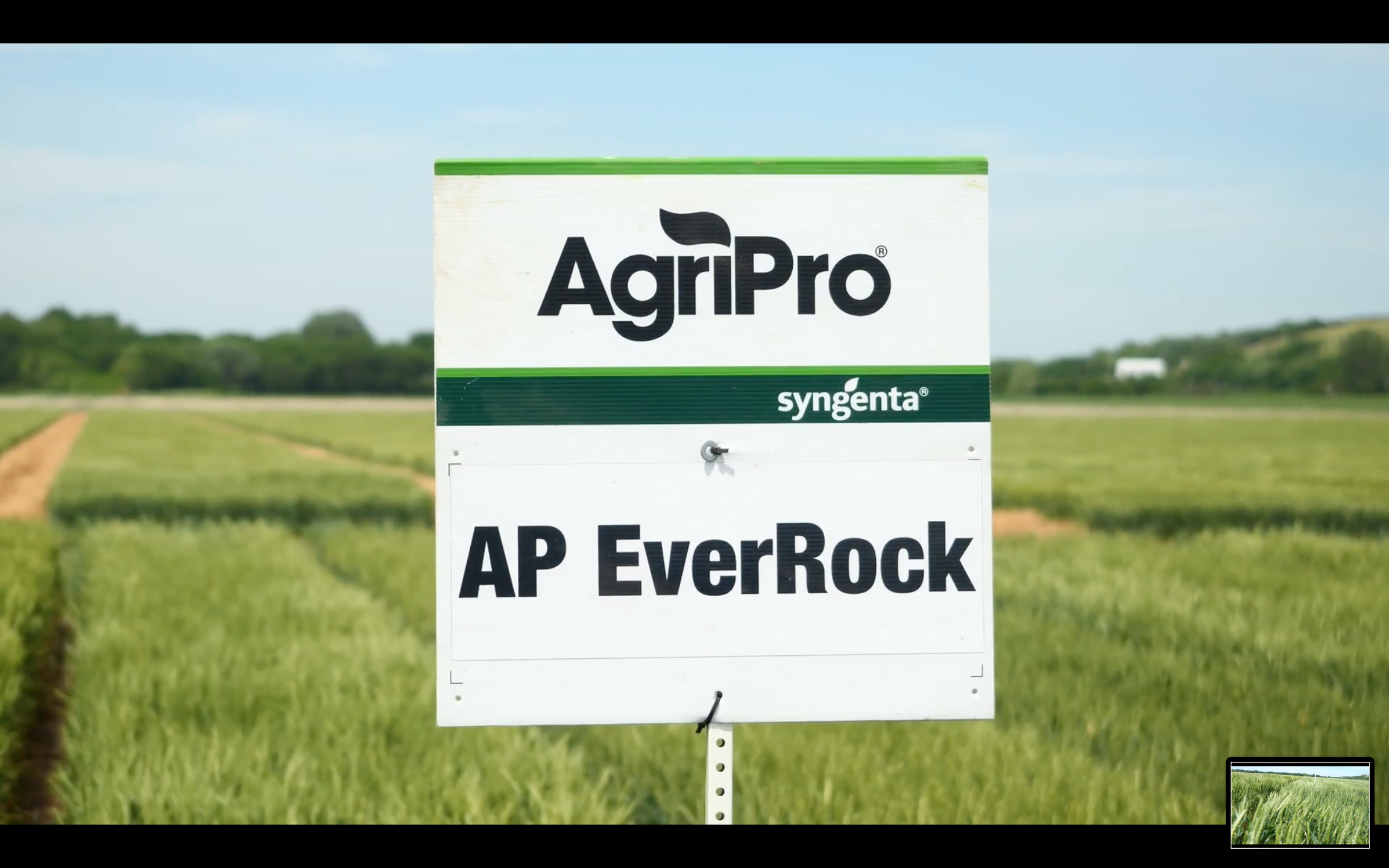
AP EverRock
Triticum aestivum
AgriPro is leading the way in the development and delivery of superior wheat seed genetics in North America. Each year more than 2,000 new experimental lines are generated and tested across 25 research and testing sites in Kansas, Nebraska, Colorado, Wyoming and South Dakota. Only the very best of these experimental lines are advanced as potential AgriPro varieties. AgriPro varieties offer high-yield potential, good test weights and high-quality grain. Wheat producers like the consistency that AgriPro varieties provide under a wide range of conditions.
- Growing Region: Southeast, Midwest
- Blooms:
- Life Form: Grass
- Application Type: Agriculture
- Height: 1-3 ft
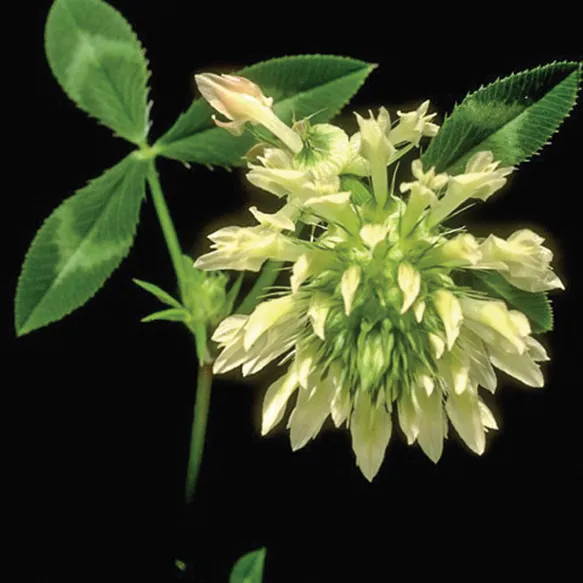
Arrowleaf Clover
Trifolium vesiculosum
Arrowleaf clover is an annual, Cool season, introduced legume commonly used in many areas of the the United States for many applications and uses. This upright clover easily re-seeds and reaches heights of 3-4 feet. Flowers May to October with white bloom color. Suitable for hay and grazing. Excellent food source for deer and other wildlife. Seed in the fall for following spring growth. Prefers well to moderately drained soils. Begin grazing at heights of 5-6 inches. High nitrogen fixer. Low heat and drought tolerance.
- Growing Region: Southeast, California, Pacific Northwest
- Blooms: Spring, Summer, Fall
- Life Form: Legume
- Application Type: Agriculture
- Height: 1-4 ft
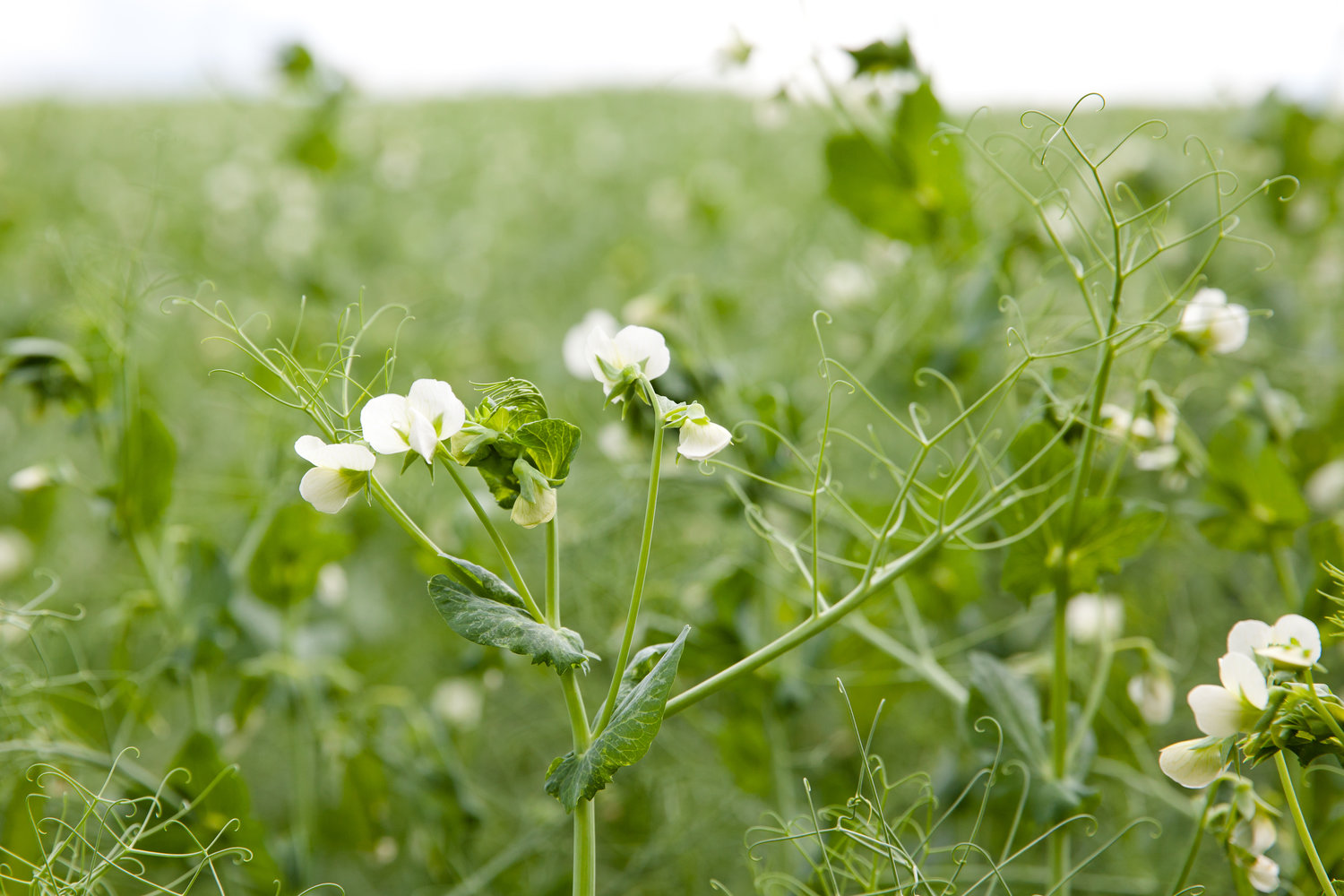
Austrian winter pea
Pisum sativum ssp. arvense
Climbing nitrogen-fixing annual legume with white to pink flowers, closely related to the garden pea. Prefers fertile, light-textured, well-drained soils; sensitive to salinity and high acidity. Water efficient and cold tolerant. Rapid and abundant forage producer with low bloat potential. Use for hay, silage, green manure or in wildlife food plots. May be grazed but easily damaged by trampling. Often seeded with cereal crops, especially Oats (Avena sativa), for climbing structure and to improve hay nutrition. May be fall-seeded, but also may be seeded in spring as a summer annual. Early and long blooming period attracts beneficial insects, honeybees and native pollinators. Some varieties are semi-leafless, with vining tendrils that replace leaflets and aid in upright growth and improved harvest.
- Growing Region: North America
- Blooms:
- Life Form: Forb
- Application Type: Agriculture
- Height: 4+ ft
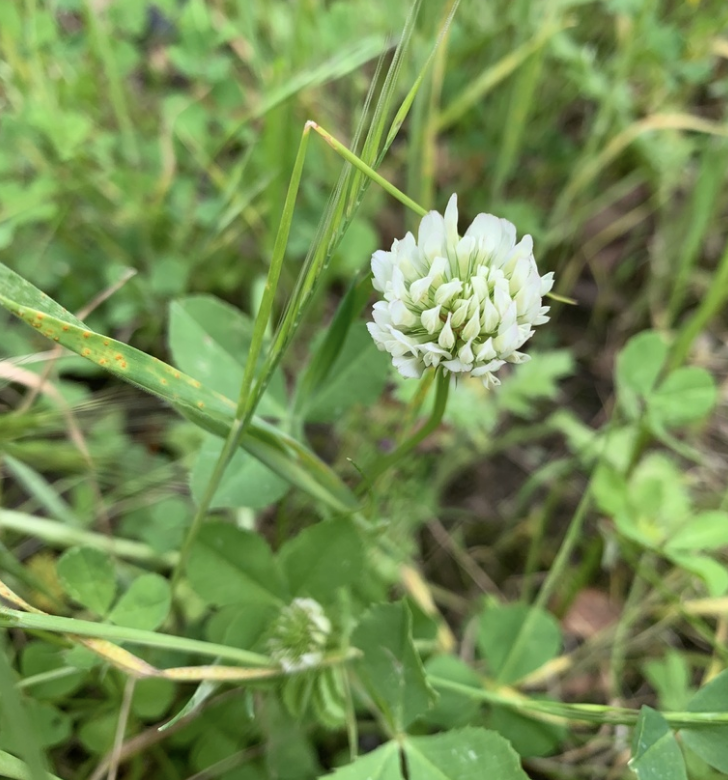
Balansa clover
Trifolium michelianum
Extremely productive, nitrogen-fixing winter annual legume with small white-pink flowers. Grows on heavy clays to moderately sandy soils. Tolerant of acidity; mildly tolerant of salinity. Mature plants are tolerant of waterlogged soils and short periods of flooding. Prostrate, hollow stemmed plants form a dense, highly productive mat of extremely palatable forage. Use as cover crop, pasture, wildlife food plots, hay or silage, either in a monoculture or mixed with other species. Germinates quickly. Persists even under continuous, intensive grazing. Readily reseeds itself when allowed to set seed. Attractive pollinator and honeybee plant.
- Growing Region: Southeast, Midwest
- Blooms: Spring
- Life Form: Forb
- Application Type: Agriculture
- Height: 4+ ft
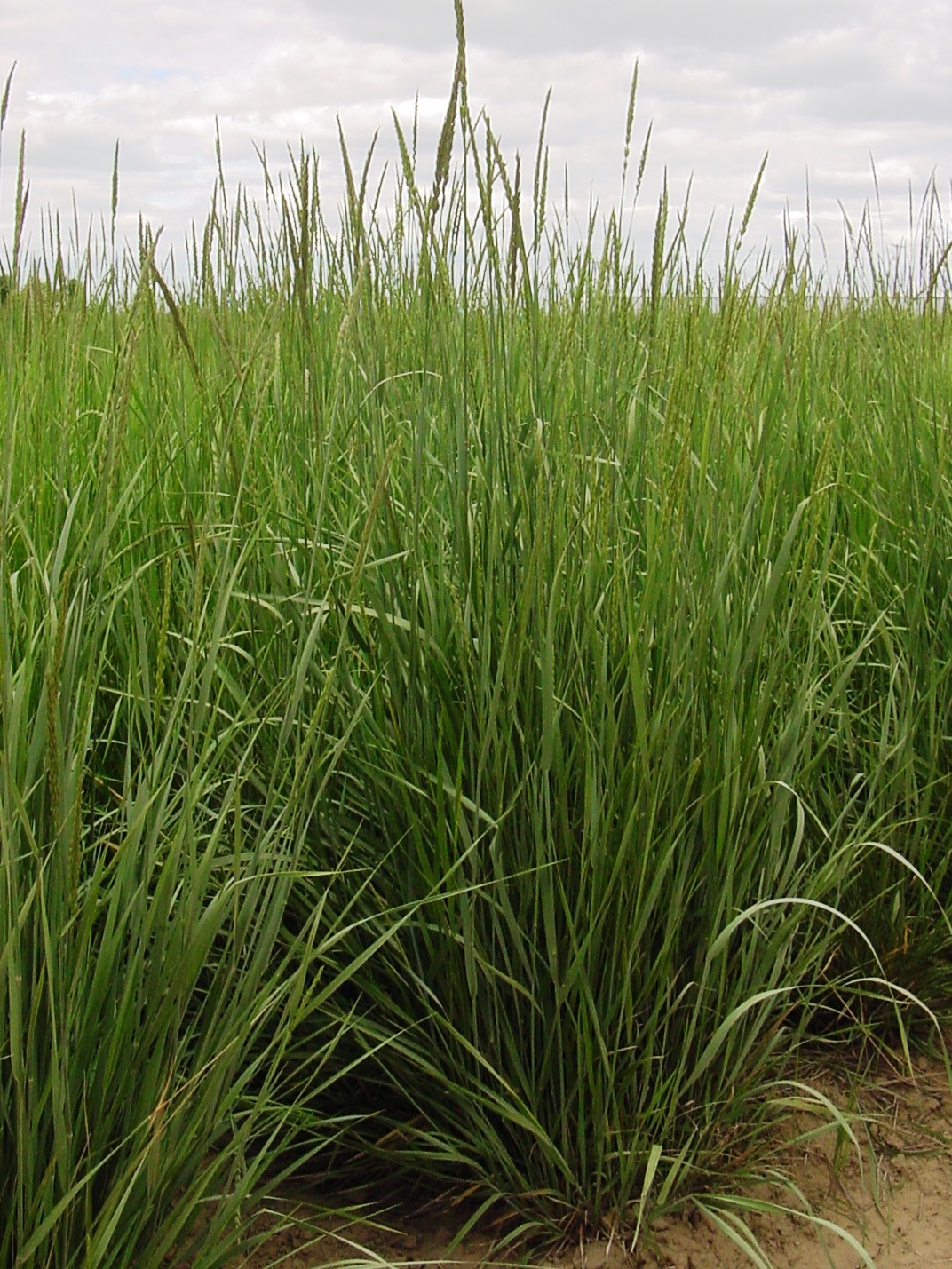
Basin wildrye
Leymus cinereus
Basin wildrye is a large, coarse, robust, perennial bunchgrass. Basin wildrye clumps may reach 3 feet in diameter and 3 to 6 feet tall (10 feet under excellent soil and climate conditions). The growing points are 10 to 12 inches above the crown. It is a long-lived Cool season native with an extensive deep coarse fibrous root system.Native to the Great Plains and Intermountain regions of the western United States, Basin wildrye occurs in moist to dry sites including wet meadows, valley bottoms, flood plains and hillsides. It is very winter hardy and has a rather broad climatic adaptation. It grows best in areas with average annual precipitation of 8 inches to above 20 inches.
- Growing Region: Southeast, Midwest
- Blooms:
- Life Form: Grass
- Application Type: Agriculture, Land Reclamation
- Height: 1-3 ft
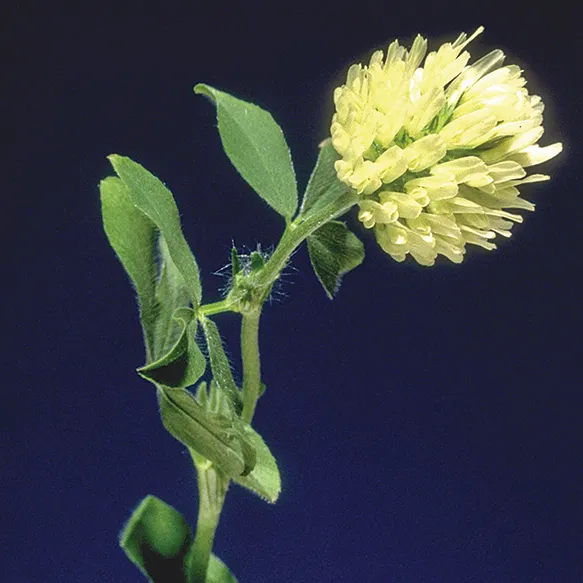
Berseem clover
Trifolium alexandrinum
Fast growing annual legume with yellowish-white flowers. Shallow taproot grows well in all soil textures except sands. Tolerant of wet soils and alkalinity. Superior nitrogen-fixer. Non-bloat, high protein forage with excellent palatability that meets or exceeds the quality of Alfalfa (Medicago sativa) and Crimson clover (T. incarnatum). Use in rotations for grazing, hay, silage, green manure, wildlife food plots or cover. Also use to enhance companion crops, especially alfalfa. Winter kills easily. Use as a summer and fall annual in northern latitudes and a winter annual in southern latitudes.
- Growing Region: Southeast, Midwest
- Blooms:
- Life Form: Forb
- Application Type: Agriculture
- Height: 1-3 ft